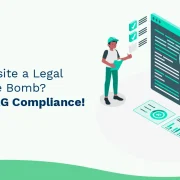
6 Factors to Consider while Digitizing Books at Scale
By 2034, the estimated value of the worldwide e-book market is $36,218.96 million, indicating tremendous growth. The industry is driven by shifts in reading patterns and technological improvements.
This blog explores everything you need to know about book digitization. From key factors that impact the process of digitization to emerging technological trends, learn more about the importance of digitization in the publishing industry.
Table of Contents:
- What is Book Digitization?
- Why Should You Digitize Your Books?
- Factors to Consider While Digitizing Books at Scale
- Emerging Technologies for Digitization of Books
- Takeaway
What is Book Digitization?
Book digitization, digitizing books, or book scanning refers to the process of converting physical books, magazines, and other records into digital media using an image scanner. As content goes digital, more and more publishers and organizations are digitizing their physical books in formats such as ASCII to easily distribute and reproduce them in the online space.
These digitized books can then be read on digital screens. The ASCII format helps reduce file size and allows text to be searched, reformatted, or processed by third-party applications.
Physical books are digitized using image scanners, which can be both manual and automated. Some commercial image scanners place the book on a platen, which is a flat glass plate, and then run a light and optical array underneath the glass to scan the book.
Manual scanners, on the other hand, place the book face up and then photograph the pages from the above. Glass or plastic sheets are placed on the pages to flatten them and the pages are either turned manually or by an automated paper transport device.
Also Read: Future Directions: Innovations in PDF to ePub3 Conversion Applications for Enhanced User Experience
Why Should You Digitize Your Books?
While physical books do retain their charm, more and more people are reading books on their tablets and smartphones. By digitizing your books, you can reach a whole new audience, primarily the millennial generation that accesses all its content and information on their mobile devices, tablets, and laptops. Apart from that, there are several advantages of digitizing books on a large scale.
- Saves Space: Real estate is expensive, and by digitizing books, you can eliminate the need for more space, and reduce rent and offsite storage fees.
- Future-proof Books: Digitization is a great way to protect books from damage, loss, and theft.
- Restore Damaged Books: Book scanning can bring damaged books to life and make them viewable once again.
- Provides Easier Access: Digitized books can be accessed online or downloaded for offline use. By making books available online you can target new customers who are unable to travel to a brick-and-mortar store to make a purchase.
- Easy Sharing: You can email or share digitized books on the cloud or other online platforms, anywhere and anytime.
- Achieve Cost Efficiencies: With digitization, you can reduce the cost of reprinting including sub-costs like equipment management, paper record maintenance, and cost of space, and thus achieve cost efficiencies.
- Environment-Friendly: By digitizing your books at scale you can add dramatically to your green credits. Digitization removes the need to print multiple copies, thus, helping to save paper and increase the eco-friendly quotient of your company.
Factors to Consider While Digitizing Books at Scale
1. Commercial Scanners
To digitize books on scale, consider commercial scanners with high-quality digital cameras with light sources on both sides. This is placed on a mount or frame in a way that provides easy access to the person or machine to turn over the pages. The advantage of such scanners is that they are faster than overhead scanners. This being said, there are two types of scanners used for large-scale digitization.
- Unbound/Destructive Book Scanning: This is a less expensive method for book scanning and so works best for low-budget digitization. In this method, the binding of the book is cut off to create a sheaf of loose-leaf papers, which are then fed into an automatic document feeder for scanning. Since this method uses common scanning technology, it does not work well for limited edition books or collector’s items. However, it is a useful solution for inexpensive books with content that can be scanned easily. This method adds to the process time since it requires cutting. This being said it is easier to scan loose pages. Besides, it is cheaper and faster and ensures clearer results. Much of the success of this method depends on how the books are unbound. While a paper guillotine can be used to unbind the book, a better option is hand-unbinding as this helps to preserve text, and more critically, allows higher-quality scans on two-page wide materials including graphic art, photos, and center cartoons.
- Bound/Non-Destructive Book Scanning: Software-driven machines and robots are used to scan the books. This method eliminates the need to unbind books and helps to preserve the contents and create a digital image of the page in its current stage. This scanning type is becoming quite popular since it incorporates technologies that can capture high-quality digital images with little or no damage to a rare or limited edition book. Some of these scanners also have ultrasonic sensors that can detect dual pages and therefore prevent skipping of pages. Use cases show that these scanners can scan up to 2900 pages per hour and so are ideal for digitizing books at scale.
The first step of the book digitization process is to create the master file. While creating the master file, it is important to keep the following parameters in mind:
- Image Resolution: Image resolution, measured in dots per inch (dpi) is the number of pixels per unit of length – the higher the resolution, the more detailed the digital copy. As a thumb rule, 300 dpi is recommended for greyscale and color originals; 400 dpi for special manuscripts; and 600 dpi for black and white originals.
- Color Management: Colour reproduction from a physical book to a digital book can vary greatly depending on the type of scanner and printer used. The problem is resolved by calibrating the different devices with a standardized color profile, which is then stored with a digital copy. The standardized color profile is developed based on the ISO-certified ICC_Profile by the International Color Consortium.
2. Editing and Quality Control
Although software solutions can be used for quality control, a better option is to perform the process manually. Once the document is scanned, it should be manually edited to check for errors such as shadowing or finger marks on the image, missing or double pages, cropped type area, poor image quality, and interference, among others.
3. Analyzing the Document
Once you have edited the document, the next step is to analyze whether it just contains text or includes images and tables. Again, you can do this process manually or use Optical Character Recognition (OCR) software.
4. Optical Character Recognition
Once the page is scanned, the next step is to enter data, which can either be done manually or through OCR techniques. For digitizing books at scale, OCR is the preferred technique as it helps to index data properly, making it easier to search and access, thus, saving time and effort.
5. Taxonomy and Indexing
Make sure that the service provider you choose for digitizing books at scale provides taxonomy and indexing services as these will help you build proper classification for your eBooks, making them easy to find. Taxonomy, on the other hand, can help to further refine search results.
6. Metadata
Once you have digitized the book, the final task is to add metadata to each item. This is important to ensure that your eBook can be easily accessed and used practically.
Emerging Technologies for Digitization of Books
Several novel innovations are developing as technology progresses to improve digitization. The following five major technologies will influence how to digitize a book in the future:
1. AI-Powered Optical Character Recognition (OCR)
Although optical character recognition (OCR) has been around for a while, the addition of artificial intelligence (AI) has greatly increased the technology’s efficiency and accuracy. Even in complicated layouts or with a variety of typefaces, AI-powered OCR can detect and transform printed text into digital format with amazing accuracy.
This technology can adapt to various languages by using machine learning algorithms to learn from large datasets.
Consequently, the process of digitizing books has become more rapid, enabling publishers and institutions to better maintain and distribute their collections.
2. Automated Book Preparation
Automated book preparation technologies streamline the process of preparing physical books for digitization. This includes tasks such as scanning, cropping, and formatting pages. Advanced robotic systems can handle the physical manipulation of books to ensure that they are scanned without damage.
The requirement for manual involvement can be minimized by these systems’ ability to automatically modify settings for the best possible image quality.
Businesses can boost their digitization by automating these procedures, which enables them to convert more books in less time.
3. Natural Language Processing (NLP)
Another cutting-edge technology that improves book digitalization through improved text analysis and comprehension is natural language processing (NLP). NLP can be used to digitize books, extract insightful information, summarize the content, and even create metadata.
With the use of this technology, digital books can now be better classified and searched, making it simpler for readers to locate pertinent information. NLP also helps create interactive reading experiences, such as chatbots that can respond to inquiries about the subject matter or provide suggestions based on the preferences of the user.
4. Blockchain for Copyright Management
Blockchain technology is a viable way to handle rights and royalties since the digitalization of books creates concerns with intellectual property and copyright.
Blockchain enables safe ownership and use rights tracking for digital books by establishing a decentralized ledger. In addition to giving users clear information about the copyright status of the content they access, this openness ensures that writers and publishers receive fair compensation for their labor.
Adding blockchain technology to the digitization process can motivate more writers to publish their works online.
5. Augmented Reality (AR) and Virtual Reality (VR)
The way readers engage with digital books is being revolutionized by augmented reality (AR) and virtual reality (VR) technology. Publishers can develop immersive reading experiences surpassing regular text with AR and VR features.
Readers can examine content-related 3D models, see interactive graphics, or even take part in online conversations with writers. These technologies make learning more dynamic by offering new educational possibilities.
Also Read: Best 5 Practices for Authors and Publishers in the Evolving EPUB Landscape
Takeaway
When implemented correctly, digitization can help organizations and publishers achieve cost-efficiencies, protection of copyright, high-quality output, and higher returns on investment. However, digitizing books at scale consumes time and money and if the process is not well-thought-out or hastily started, it could impact your bottom line.
An electronic conversion of physical books is more than just scanning with a commercial scanner. Successful digitization of books at scale requires specialized knowledge and special software. Professional book digitizing service providers like Hurix Digital use trained technicians to ensure high levels of digitization at each stage of the conversion process including preparing files, data entry, image output, and quality control.
OCR technology is then used to index records for each converted digital image. Our professional digitization services ensure that your books are converted to eBooks accurately.
If you are still looking for pertinent factors to keep in mind while digitizing books, we are happy to help you with our expert tips!

Vice President – Content Transformation at HurixDigital, based in Chennai. With nearly 20 years in digital content, he leads large-scale transformation and accessibility initiatives. A frequent presenter (e.g., London Book Fair 2025), Gokulnath drives AI-powered publishing solutions and inclusive content strategies for global clients




